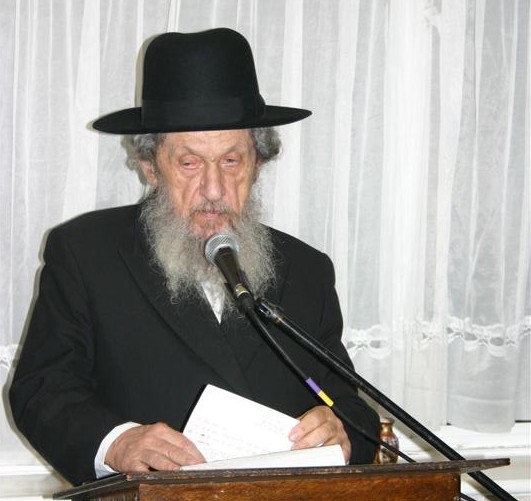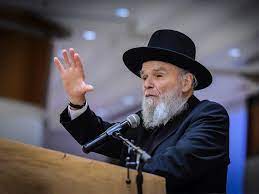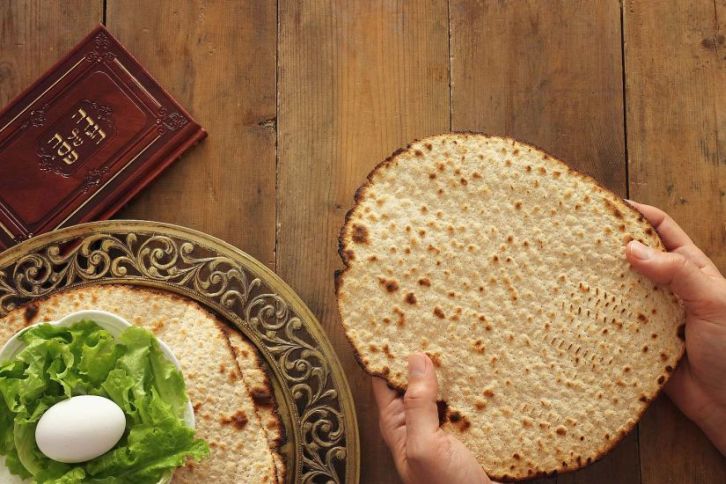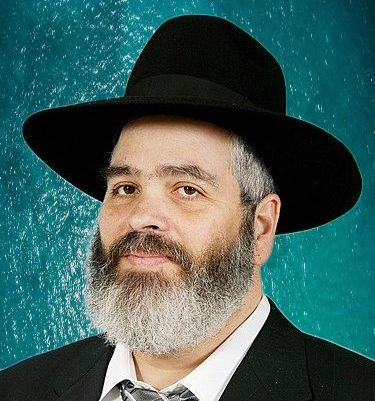  |
|
| |||||
This Google Custom Search looks only in this website. HaRav Dov Lando shlita: Torah Study Protects the Country
In an address of guidance for the end of the zman in Yeshivas Tiferes Zion, HaRav Dov Lando said that "one should know that Torah must also be studied during the intersession. While there is a need for a student to rest and relax and help in the house, which is surely a mitzvah, still it is clear that Torah study must continue during all interim times so they will not fall lax therein.
"They tell that HaRav Refoel Shapira, Rosh Yeshivas Volozhin, the father-in-law of the Netziv and mechuton of HaRav Chaim of Brisk, was an exceptional masmid. He noted that it was good thing that during bein hazmanim a young man could study what he was most drawn to, even other masechtos."
HaRav Lando related to the trials of maintaining study at this time and said, ...
"When a man toils in Torah, it is a sign that he maintains that the purpose of life is Torah and the honor of Hashem. Chazal see that whoever promotes the honor of Heaven has tremendous Heavenly assistance in his study. With bein hazmanim upon us, one must study as much as possible and not lose whatever he has gained. This includes not going on outings or causing any Chillul Hashem whatsoever.
"Whoever truly honors Hashem merits a special measure of Heavenly assistance in his Torah study. Hashem teaches him Torah, and if one studies when it is particularly difficult, this constitutes honoring Him, and thus he is privy to the same measure of siyata deShmaya which is awarded to one who honors Hashem.
Part II
Last week we spoke about the generally stringent approach to Pesach. This week we follow with some famous examples.
Potatoes: Giving Thanks For Their Late Discovery
The potato is even more of a dietary staple at Pesach than it is during the rest of the year. Many people use it for carpas but... yes, there were some opinions that forbade it entirely!
While the Teshuvos Yad Aharon (siman 16,) acknowledges that "the straightforward custom is to eat potatoes—they are the main food item for most people on Pesach," it is clear from the Pri Megadim that this was not universal. He writes, "`Erd-appfel' is permitted, except in places where the custom is to forbid it."
Coffee: Kitniyos?
"Gebrochts": Perhaps The Most Famous Chumra Of All
Was it necessary to apologize for the accidental death of the seven members of the World Central Kitchen?
Is it mandatory to dismiss the commander of the division and those responsible for this killing?
Perhaps we should ask a simpler question: Did the Israeli apology and dismissal of the top officials diminish in any way the world censure of an accidental event? The answer is negative, and perhaps even the contrary. The higher that the level of apologies rose, in the same measure, accordingly, did the criticism swell. If Israel is so apologetic, apparently their guilt is justified! And if so, the world must increase the attacks against it.
Not one of the apologizing spokesman failed to present the simple fact that the central cause for that tragic error was the terrorist organization in Gaza itself which utilizes citizens as buffers and personal shields. It works through innocent citizens, uses ambulances as camouflage, and hospitals as centers for terrorist activities. There are terrorists as well.
Only a few days ago, with the withdrawal of Zahal from Khan Yunis, rockets were fired at the south directly at the humanitarian forces area there.
Rain and Kinneret Watch by Dei'ah Vedibur
Staff
Our weekly report of the rain and the level of the Kineret -
Winter, 5784.
* * *
Outstanding Articles From Our Archives
Opinion & Comment
By Rabbi Daniel Yaakov Travis
Last Minute Preparations
Shimon and Sarah Gold, together with their seven children, were planning to travel from Israel to spend Pesach in America. On the 12th of Nisan, the day of their flight, their daughter Rachel suddenly became extremely ill and was running a dangerously high fever. After examining Rachel for a few minutes, Dr. Brown told the Golds that their daughter could not travel and they would have to make arrangements to spend Pesach in Israel.
The next two days were a frantic rush for the Gold family, as they hurriedly tried to pack four weeks of preparations into forty-eight hours. After two days of nearly nonstop toil, they finished their Pesach preparations at five in the morning on the 14th of Nisan, erev Pesach. Mr. Gold davened Shacharis, burned his chometz and collapsed onto his bed.
At about 11:30 a.m. Mr. Gold woke up and realized that there were a number of things that he had failed to take care of in his haste. He looked at his watch, and realized that in less than an hour it would be chatzos (halachic noon). How should he proceed with his remaining Pesach preparations?
In order to advise Mr. Gold, we will have to investigate the unique nature of erev Pesach, and understand the underlying principles that define which melochos are permitted on that day.
IN-DEPTH FEATURES
by Rav Dov Eliach
Part I
In his three-volume work HaGaon (that was put together under the supervision of HaRav Chaim Kanievsky) Rav Dov Eliach brought together an enormous amount of material to try to give us some concept of what the Vilna Gaon was. The Gaon was outstanding in many aspects of human development. Our concepts do not do justice to what the Gaon really was. The section printed here is taken from Chapter Five, and is centered around the breadth of knowledge of the Gaon. When reading it, one should keep in mind that this is just one of many areas in which the Gaon lived at a such an outstanding level.
Rav Eliach has added a new series of volumes to the bookshelf of works related to the Gaon with the ongoing publication of Chumash HaGra, an arrangement of the comments of the Gaon arranged according to the parshiyos of Chumash, with the full Chumash text. So far Bereishis, Shemos and Bamidbar have appeared, and we eagerly await the completion of the series.
*
The Chazon Ish wrote, " . . . his level of Divine inspiration and the like, and his diligence and breadth of knowledge, in profound depth, in all the Torah that is now in our possession - we cannot imagine how it is even possible" (Kovetz Igros).
The Gaon's mechuton, the Chayei Odom, said of him, "His mind contained the entire Torah, both the revealed and hidden portions, to such an extent that it was unfathomable how an individual could hold so much in his head."
In describing someone who studied all of Talmud Bavli, one might say: "He completed Shas." If this person then reviewed it until he knew it perfectly, one could call him "an expert in Shas." If he studied the Talmud Yerushalmi too, then he is "an expert in Shas Bavli and Yerushalmi." Similarly, if he were to study other parts of Torah one could list all the areas of his expertise, and that would give a sense of what he had accomplished.
However this is not true of one who studied Torah diligently, in great depth, throughout his entire life, without neglecting anything in the entire Torah. Even by saying, "He studied and knew the entire Torah," one has not conveyed the scope of the Gaon's accomplishments, for people cannot really grasp what that is. As the Chazon Ish writes, "We cannot imagine how it is even possible."
Of the Torah it says, "Its size is longer than the earth and wider than the sea." The Gaon explained that the very yardstick for measuring the Torah is itself "longer than the land and wider than the sea" (Peninim MiShulchan HaGra, Iyov 11:9).
|
|||||




.jpg)




